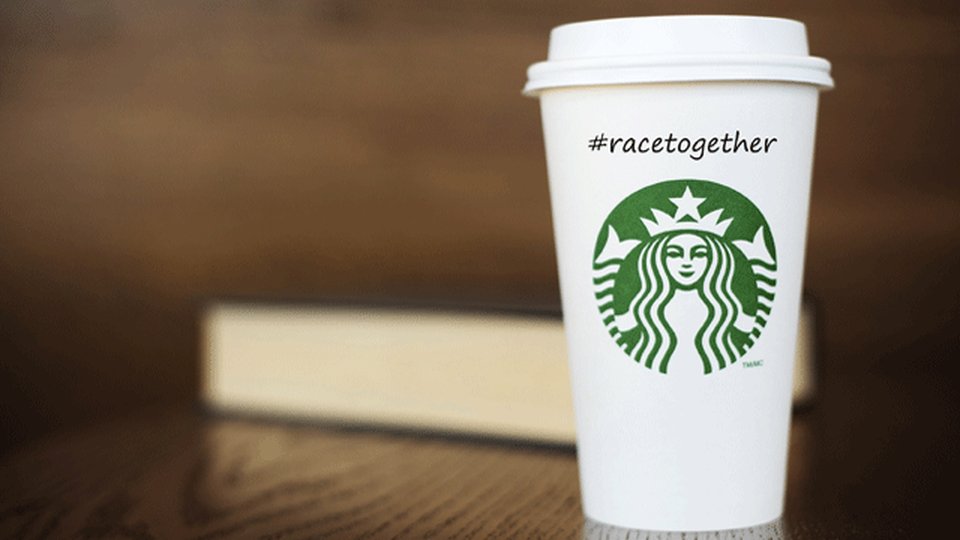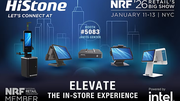Article
Starbucks suspends 'Race Together' campaign amid criticism
Hoping to encourage a dialogue around race-related issues, the Seattle-based coffee giant devised the now partially dismantled "Race Together" campaign where baristas write the slogan on Starbucks coffee cups, and engage select customers in a conversation on race.

March 24, 2015 by Josh Fischer — Editor, NetWorld
Starbucks has taken some heat of late, but in the marketing game that isn't always a bad thing. Oscar Wilde said: "The only thing worse than being talked about is not being talked about." Starbucks is definitely being talked about.
Hoping to encourage a dialogue around race-related issues, the Seattle-based coffee giant devised the now partially dismantled "Race Together" campaign where baristas write the slogan on Starbucks coffee cups, and engage select customers in a conversation on race. Most of the criticism Starbucks has received revolves around the awkward position this tactic has put their employees in.
This past Sunday the "Race Together" initiative abruptly came to an end. Starbucks CEO Howard Schultz told employees and shareholders in a memo: "This phase of the effort — writing 'Race Together' (or placing stickers) on cups, which was always just the catalyst for a much broader and longer term conversation — will be completed as originally planned (Sunday)."
Schultz continued to explain in the memo that the ambitious and socially conscious effort was more than Sharpies and stickers and a slogan: "But this initiative is far from over. We have a number of planned Race Together activities in the weeks and months to come." These include open forums, special sections co-produced with USA TODAY, dialogue with police and community leaders, job creation for minorities and a "continued focus" on education.
The most virulent criticism levied against Schultz, and Starbucks, has been the accusation that their Race Together initiative is largely a marketing gambit, exploiting the hot-button issue of race to sell espresso. The backlash has led Starbucks Senior Vice President of Global Communications Corey duBrowa to temporarily deactivate his Twitter account because of a "cascade of negativity," duBrowa tweeted.
Media consultant April Reign wrote on her Twitter account @ReighOfApril:
Not sure what @Starbucks was thinking. I don't have time to explain 400 years of oppression to you & still make my train. #RaceTogether
— April (@ReignOfApril) March 17, 2015
Reign summarizes the sentiments of thousands of Starbucks customers on Twitter, some not as measured, but more angry and aggressive.
Social media is a marketer's dream and nightmare, its double-edged sword dynamic provides free market feedback and connectivity to the end user. This gives marketers valuable information to make real-time adjustments, or address consumer concerns — or halt marketing efforts altogether that are damaging the brand. In short, social media provides intimacy, for better or for worse.
McDonald's, another titan in the food service industry, recently felt the social media backlash stemming from a campaign that drew disfavor from the Twitter community. When a 2015 Super Bowl commercial aired that suggested Big Macs could be paid for with hugs, McDonald's quickly stopped the ads amid consumer confusion. The ill-advised ad campaign made McDonalds vulnerable to social media ridicule. Twitter, Facebook and Instagram increasingly give immediate voice to the consumer in a way that retailers are still learning to utilize and dodge.
Starbucks claims that it has maintained its planned schedule for writing on cups, and moving forward with their other Race Together initiatives. Whether this is damage control or planned obsolescence, the campaign was not working. Social media gave Starbucks immediate feedback, and they reacted quickly to plug the hole in what could have been a better rollout. The plan at heart had great intentions.
Kareem Abdul-Jabbar, the NBA's all-time leading scorer, wrote in a column for Time.com: "I'm in awe that (Schultz)'s willing to endure the snarky ridicule and lame coffee jokes from pundits as well as the inevitable death threats from clueless trolls." Jabbar has been outspoken on issues facing the African-American community. Despite his praise, he questions Schultz's tactics in the column. "He's picked the wrong venue with the wrong audience using the wrong spokespersons."
Schultz told shareholders the intent of the Race Together campaign last week when it launched at the company's annual meeting: "Our intent is to try to elevate the national conversation, because we're willing to jump into the deep end of the pool ... I think others will follow us."
Starbucks is wading back to the shallow end, alone, largely because consumers aren't ready to mix their grab-and-go coffee with a socially sensitive issue such as race relations in the United States.
 ChatGPT
ChatGPT Grok
Grok Perplexity
Perplexity Claude
Claude




